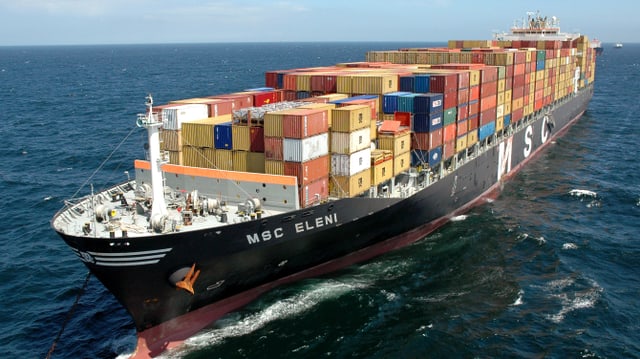Contents
International shipping should be climate-neutral by 2050. There are still a few hurdles to overcome, says the UN.
It takes 8 to 28 billion dollars per year to make international shipping emission-free. Ships should therefore be converted to use alternative fuels or new, climate-neutral ships should be built. This is what Unctad, the UN Conference on Trade and Development based in Geneva, states in its latest report on maritime transport.
For comparison: Last year, according to industry experts, the world’s largest shipping companies recorded a total of $250 billion in profits. This is more than ever before and is the result of freight prices that rose massively during the pandemic.
Global trade is declining
However, trade is now declining, partly due to the economic weakness. For shipping companies, this means that they are currently struggling with overcapacity. This is a problem for the industry because, as a rule, a ship that is not 90 percent full is inefficient.
And that in turn means: The shipping companies see it as a big risk to make large investments in this tense situation. They are more likely to reduce the number of ships they have instead of converting and expanding them. This is likely to further slow the transition towards climate-neutral ships.
Ports also need to be equipped
Unctad writes in its report that major investments in the decarbonization of shipping are not only needed in the ships themselves. The port infrastructure also needs to be converted to make the new fuels available.
This will cost 28 to 90 billion dollars per year until 2050. As a result, the Geneva UN agency expects fuel costs for shipping to rise by 70 to 100 percent.
These higher costs would have a particularly negative impact on small island states or generally poorer countries that rely heavily on transport across the world’s oceans. According to Unctad, there is a risk that these countries in particular will be left behind from world trade due to decarbonization.
Rapid measures necessary
Accordingly, Unctad is calling for rules that should apply to all ships on the world’s oceans, regardless of which flag they are sailing under or where their owners are registered. “Economic incentives are needed,” explained Unctad Secretary General Rebecca Grynspan.
Taxes on emissions could make alternative fuels more competitive. And a fund is intended to cushion the additional costs of decarbonization for poorer countries. However, these measures would have to be taken quickly in order to achieve the targeted emission reductions in shipping.
Ultimately, 80 percent of emissions from shipping should be eliminated by 2040, and shipping should be completely climate-neutral by 2050.
